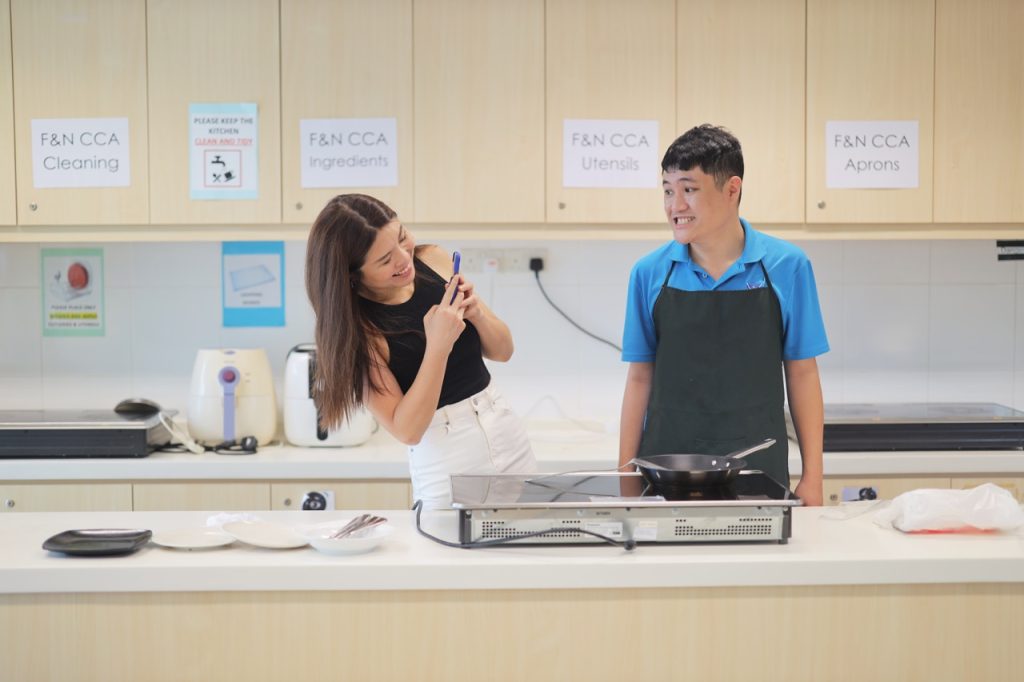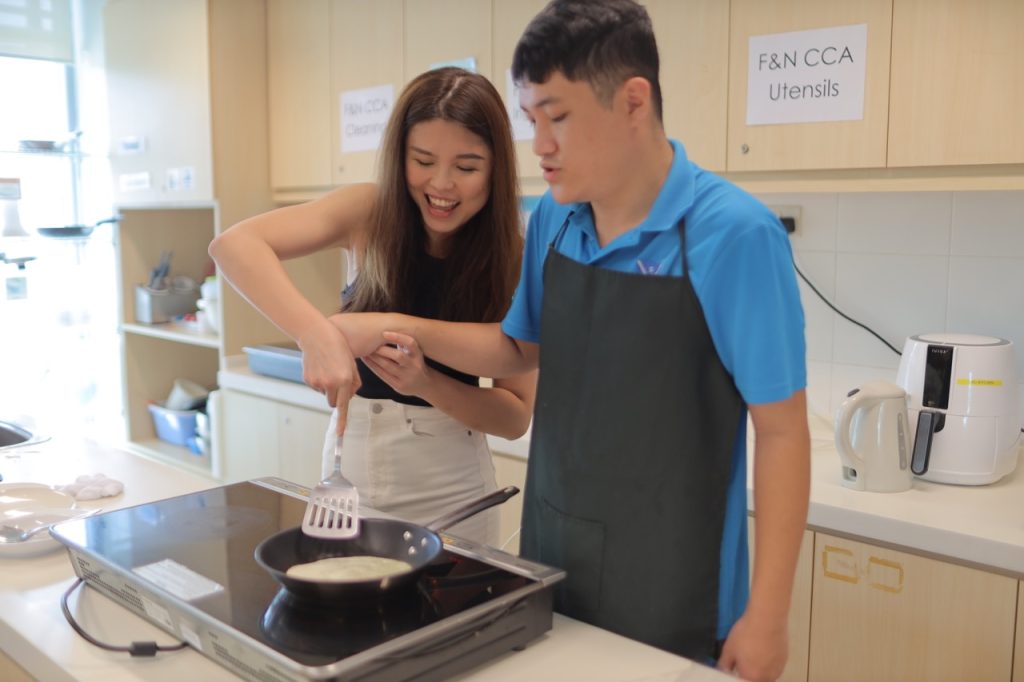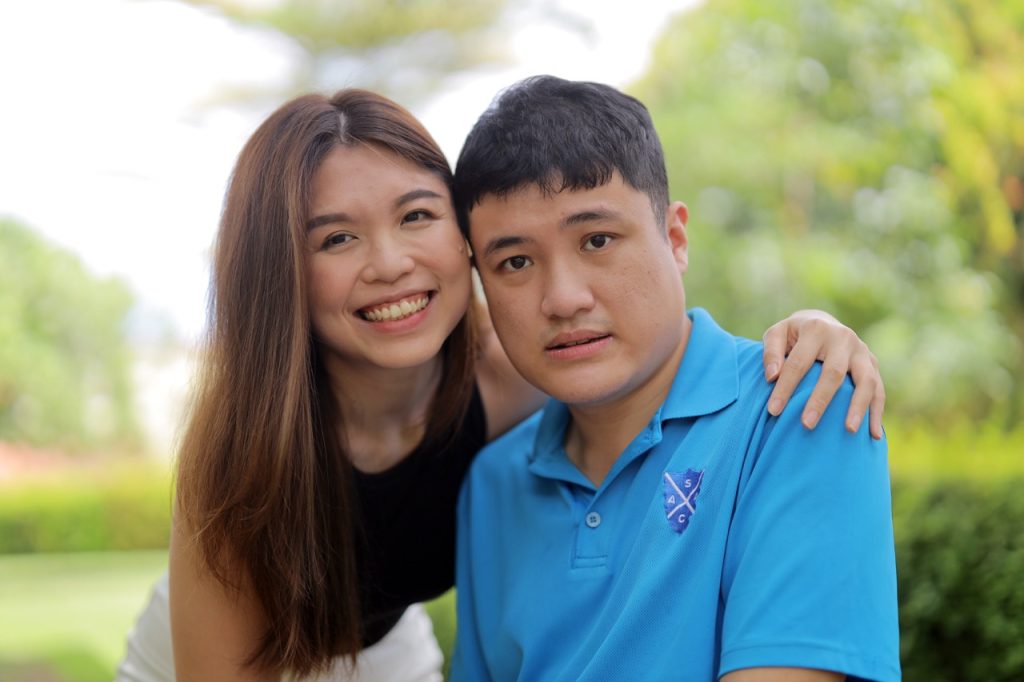When I was about 7 years old, my parents told me that my younger brother, Tee Ray, is special. As a child, I did not fully understand what “autism” meant. It has taken me over two decades to learn what that word means, and every day I am still discovering new things about my brother as a person with autism.

Childhood years:
Growing up with a sibling who is autistic has its own unique set of challenges and “sacrifices”. Tee Ray, who has fits, went through a violent phase during his teenage years. Yet, my parents never blamed him and took it all in their stride. When my grandfather was alive, he really doted on Tee Ray. Even when Tee Ray hit him, he would say “it’s okay, it doesn’t hurt, Tee Ray doesn’t mean it”. As a daughter/granddaughter and an older sister at the same time, it was very hard for me to watch a loved one get hurt by another. It was even more so when I knew I couldn’t be of any help; I could only empathise in such situations.
Family outings and holidays have always been challenging, and at times, impossible. Tee Ray is a creature of habit, a common characteristic of people with ASD. He loves watching his shows on the tablet during his free time and likes Chinese food. I, on the other hand, love to be more adventurous with food. Hence when I am with him, I know that we have to stick to Chinese food. He has been trying to grow his palate though. Recently, we let him try Unagi Don and he took an immediate liking to it! So, baby steps for now.
Over the years, I have developed a natural filter for people with whom I can share about my brother’s condition. I cannot bear the thought of my brother being judged; it inevitably takes a lot for me to invite anyone home. I guess it is my natural protective sisterly instincts kicking in.

Growing closer:
When my grandfather passed away in 2021, Tee Ray had one less person in this world who loved him. I vowed to myself then that I will make the effort to be a better sister to him. a year ago, I started volunteering at SAAC’s Day Activity Centre, where Tee Ray currently goes to. Witnessing how his coaches interact with him has helped me greatly in understanding him. For example, how we can better handle his sensory challenges and how we can get him to communicate with longer sentences at home. The volunteering experience has been eye-opening for me as I get to understand what the word “spectrum” means.
Contemplating the future:
My parents have never pressured me to take care of Tee Ray when they are no longer around. They are open to placing him in a care facility to ensure his well-being, so it doesn’t cause any “disruption” to my life. To that end, I appreciate my parents for always prioritising their children’s best interests. Certainly, taking up the responsibility as the main caregiver for Tee Ray would mean that I have to make adjustments to my life – for example, finding a future partner who accepts and loves him as much as I do. However, it’s a responsibility I’m willing and grateful to be able to take.
Cherishing moments together:
Even though I cannot deny the challenges that come with having a loved one who is on the autism spectrum, they make every good moment that much more special. Recently, Tee Ray learnt the art of negotiation! Each morning when my Dad goes to wake him up for school, he would say “5 minutes!” Dad will try to wake him up again after 5 minutes and again he would say, “5 minutes!” When Dad rejects his request, Tee Ray then would go, “1 minute!” Dad would give a mini sigh before giving in to him once again. Hearing this banter never fails to put a smile on my face.

Sometimes I do wonder what our relationship would be like if Tee Ray were not autistic. I imagine the conversations we would have about anything under the sun and the many life experiences we would share – but then we would have missed out on the special experiences he has gifted us, like those shared here. We have a long journey ahead of us and he will have me by his side as we go through life – together.
===
Pang Tze Hui is a 28-year-old whose brother, Tee Ray, attends the Day Activity Centre (DAC) at St. Andrew’s Autism Centre. On the first Friday of each month, she takes leave from her job as an analyst at a bank to volunteer at DAC.
💙 To volunteer at SAAC, email [email protected]
💙 To support our work, consider making a donation.







